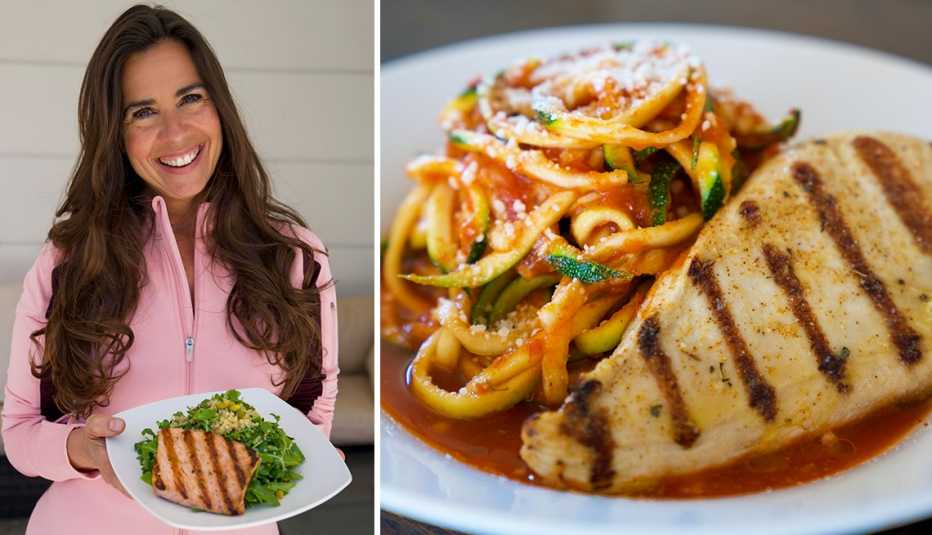What Can You Eat With Dentures : Enjoy Delicious Foods Without Restrictions
Last Updated on 5 months by DR. ALBIN SIPES
You can eat soft foods like eggs, yogurt, pasta, cooked vegetables, and fish with dentures for the first few weeks. Ensure to chew using both sides of your mouth and avoid sticky or hard foods to prevent dislodging the dentures.
Adjusting to eating with dentures usually takes time, but with practice, you can enjoy a varied diet without any discomfort. Eating with dentures may feel challenging at first, but with the right approach, it can become an effortless and enjoyable experience.
Whether you’re a new denture wearer or looking for tips to enhance your eating experience, understanding what foods to eat and how to eat them with dentures can make a significant difference. This guide will provide you with practical advice and meal ideas to help you navigate dining with dentures confidently and comfortably.
Discovering Denture-friendly Diets
Adjusting to life with dentures can come with dietary challenges, but with some thoughtful planning and consideration, it’s entirely possible to enjoy a wide range of delicious and nutritious foods. Understanding the basics of choosing foods, being aware of the factors that affect your food choices, and following a few simple tips for a smooth transition to dentures can make a significant difference in adapting to a denture-friendly diet.
Understanding The Basics Of Choosing Foods
When transitioning to dentures, it’s essential to select foods that are easy to chew and will not place excessive pressure on your dentures. Opt for soft, easy-to-eat foods that are gentle on your gums and teeth. Incorporating a variety of fruits, cooked vegetables, tender meats, and moist foods into your diet can help prevent discomfort and unnecessary strain on your dentures.
Factors Affecting Food Choices With Dentures
Several factors can influence your food choices when you have dentures. The fit and stability of your dentures play a significant role in determining which foods are most suitable for you. It’s important to consider the texture, temperature, and size of the food, as well as its potential to cause irritation or pain. Additionally, being mindful of any food and beverage restrictions recommended by your dentist or prosthodontist is crucial in maintaining the longevity and comfort of your dentures.
Tips For A Smooth Transition To Dentures
- Start with small bites and gradually increase portion sizes as you become more comfortable with your dentures.
- Chew slowly and carefully, using both sides of your mouth to distribute the pressure evenly.
- Consider using denture adhesives to enhance stability and minimize movement while eating.
- Stay hydrated to maintain oral health and promote comfortable wear of your dentures.
- Consult with your dentist or prosthodontist for personalized dietary recommendations tailored to your specific dental needs.
What To Eat With Dentures: Mainstays
Textures And Techniques For Effortless Eating
Eating with dentures can sometimes present challenges, but with the right techniques and understanding of food textures, it’s possible to enjoy a wide variety of foods effortlessly. Let’s explore the strategies and methods for managing different food textures, cutting and chewing best practices, and the importance of food temperature and consistency when wearing dentures.
Managing Different Food Textures
When it comes to managing different food textures with dentures, it’s important to consider the ease of chewing and the potential for food particles to become trapped beneath the dentures. Here are some tips for navigating various food textures:
- Opt for softer textures such as soups, cooked vegetables, and tender meats to minimize chewing difficulty and discomfort.
- Be cautious when consuming sticky or crunchy foods, as they can adhere to or dislodge dentures.
- Take smaller bites and chew slowly to allow for better control and comfort during the eating process.
Cutting And Chewing: Best Practices
To ensure a smooth eating experience with dentures, practicing effective cutting and chewing techniques is essential. Consider these best practices:
- Use a sharp knife to cut food into smaller, manageable pieces to reduce the amount of chewing required.
- Chew food evenly on both sides of the mouth to maintain balance and stability with dentures.
- Practice good posture while eating to minimize jaw strain and promote proper chewing motion.
The Role Of Food Temperature And Consistency
Food temperature and consistency play significant roles in facilitating comfortable eating with dentures. Consider the following factors:
| Food Temperature | Consistency |
|---|---|
| Eat foods at a moderate temperature to avoid potential discomfort or warping of dentures. | Choose foods that are neither too hard nor too sticky, aiming for a balanced consistency that is easy to manage and chew. |
| Allow hot foods to cool slightly before consumption to prevent burns and discomfort. | Opt for foods that are easily swallowed and don’t require excessive effort to break down. |
Adapting Culinary Techniques For Dentures
Adapting culinary techniques for dentures can be a game-changer in making mealtimes enjoyable and comfortable. Whether you are a seasoned cook or a food enthusiast, there are various ways to adjust your cooking methods, flavors, and presentation to accommodate the use of dentures. In this section, we will explore some adaptable culinary techniques for denture wearers.
Cooking Methods To Soften Foods
When preparing meals for individuals with dentures, it’s important to consider the texture of the food. Softening certain foods can make them easier to chew and more enjoyable to eat. Utilizing cooking methods that soften foods, such as steaming, boiling, or braising, can be incredibly beneficial. These methods can help make vegetables, meats, and grains more palatable for those with dentures. Incorporating softer textures can reduce the need for extensive chewing and minimize discomfort during eating.
Seasonings And Flavors That Work Well
Choosing the right seasonings and flavors can enhance the culinary experience for denture wearers. Opt for bold flavors and spices to add depth to dishes without relying solely on texture. Ingredients like garlic, ginger, and citrus can provide a zesty kick to meals, while herbs like basil, parsley, and cilantro can bring freshness and aromatic notes to the table. Experimenting with different seasoning blends and sauces can contribute to a diverse and flavorful diet for individuals with dentures.
Creative Plating And Presentation Ideas
Enhancing the visual appeal of meals can make dining with dentures more enjoyable. Consider incorporating colorful and vibrant ingredients to create visually stimulating dishes. Using a variety of plate shapes and sizes can also provide a different eating experience. For instance, using smaller plates can make portion sizes appear more substantial, while larger plates can allow for more creative plating options. Additionally, arranging food in aesthetically pleasing patterns or designs can add an extra layer of enjoyment to the dining experience.
Enjoying Social Meals With Confidence
Strategies For Eating Out With Dentures
When wearing dentures, it’s essential to become adept at navigating social settings such as dining out. With a few strategies in place, you can enjoy meals with confidence, whether at a favorite restaurant or a friend’s dinner party.
Communicating Dietary Needs To Hosts
Effective communication with hosts or waitstaff can make a significant difference in ensuring a comfortable dining experience. It’s important to convey any dietary restrictions or preferences clearly, including the ability to eat certain types of foods comfortably with dentures.
What Can You Eat With Dentures: Staying Social Without Restrictions
Despite wearing dentures, it’s still possible to savor a variety of foods and participate in social gatherings without feeling restricted. With the right knowledge and techniques, you can enjoy a diverse range of food options while maintaining comfort and confidence.

Credit: www.aarp.org
Conclusion
Taking care of your dentures means you can enjoy a variety of foods without worry. With proper maintenance and a few adjustments, you can savor your favorite dishes just like before. From soft foods to well-cooked vegetables, there are plenty of options to explore and enjoy with your dentures.
Remember, maintaining good oral hygiene and visiting your dentist regularly will ensure a comfortable and satisfying eating experience.


